We love sharing what we’re reading, so without more fanfare, here’s what some of us read this fall/winter. There seemed to be a bit more overlap this year, but across a range of topics — from Genghis Khan to business & life principles and explanations that drive progress. A few books — Radical Candor by Kim Scott, Shoe Dog by Phil Knight, and Sapiens by Yuval Harari — seem to make the list every time… And this time, it’s 64 books total (not counting series, but counting other books by same authors mentioned in the blurbs below).
…from Katie Baynes, communications team:
Why Poetry by Matthew Zapruder. “This Bay Area poet makes a strong but simple case for poetry: for how we should think about reading it and why we should be enjoying it more. Zapruder contemplates his own relationship with poetry, weaving his prose alongside the poems of selected authors including some from around the world. He analyzes the poems in a thoughtful, professorial way, while still leaving space for readers to explore their own interpretations — I found myself daydreaming a bit while reading this… Poetic imagery has a way of setting off the imagination.”
…from Lauren Berson, market development team:
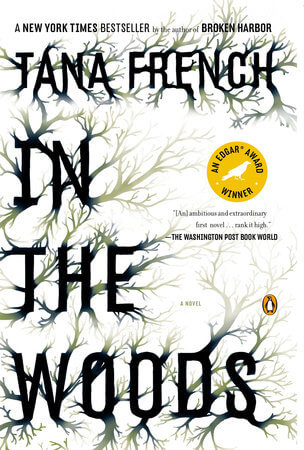 In the Woods; The Likeness; Faithful Place; Broken Harbor; The Secret Place, The Trespasser by Tana French. “I recently took a short break from nonfiction to dive into the beautiful and frightening world that Tana French depicts in her ‘Dublin Murder Squad’ series of psychological thrillers. Fascinating, addictive, and not your average murder mystery; each novel is intense and ingenious and they do not have to be read in any order. A great escape!”
In the Woods; The Likeness; Faithful Place; Broken Harbor; The Secret Place, The Trespasser by Tana French. “I recently took a short break from nonfiction to dive into the beautiful and frightening world that Tana French depicts in her ‘Dublin Murder Squad’ series of psychological thrillers. Fascinating, addictive, and not your average murder mystery; each novel is intense and ingenious and they do not have to be read in any order. A great escape!”
…from Martin Casado, general partner:
Shadow Divers: The True Adventure of Two Americans Who Risked Everything to Solve One of the Last Mysteries of World War II by Robert Kurson. “The most dangerous sport (deep wreck diving) meets mystery (trying to identify a newly discovered ship) meets history (a German U-boat). One of the most enjoyable books I’ve read in a long time.”
…from Frank Chen, deal (research and investing) team:
Behave: The Biology of Humans at Our Best and Worst by Robert M. Sapolsky. “This is a brilliant synthesis of what we know about the brain and how it influences our behavior. You will not be able to look at your fellow human beings the same way after reading this book.”
…from Perri Chilton, technical talent team:
The Gatekeepers: How the White House Chiefs of Staff Define Every Presidency by Chris Whipple. “These are some of the most influential people in U.S. history, that no one knows about, and this book does a beautiful job of highlighting both the contributions and personalities of more historically recent ones.”
…from Sonal Chokshi, editorial team:
The Beginning of Infinity: Explanations that Transform the World by David Deutsch. “This book is not about explanations in the writerly sense — rather it’s about their role in driving scientific progress. It points the reader to fallibilism, as opposed to justificationism and even empiricism as a means for creating knowledge, which I love because let’s face it, new authorities always replace the old ones [this by the way is why The Last Jedi is so powerful!]. So it’s not just about rejecting authority but embracing conjecture (along with criticizing, experimenting, testing among varying ideas) to progress; in fact, when you look back to the Age of Enlightenment to now, we’re still really just at the beginning of things… The book made me wonder if startup founders are perhaps the ultimate fallibilists (‘expect even their best and most fundamental explanations to contain misconceptions in addition to truth, and so they are predisposed to try to change them for the better’) — and what are startups, really, but organizations that solve problems under conditions of high uncertainty? (‘unforeseeable new ideas that make the future unpredictable will begin as speculation, and every speculation begins with a problem…and problems have solutions’). I generally don’t like grand-theories-of-everything, and some parts were dense, but this book indirectly made me think about all sorts of things differently — from the current p-value crisis to the future of deep learning (could ‘learning’ become conjecture?) and especially creative AI. Ultimately, conjecture is at the heart of all kinds of *creativity* and innovation.”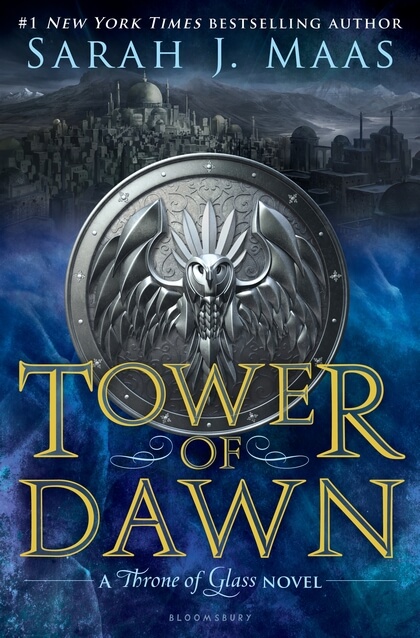
Tower of Dawn (Throne of Glass series) by Sarah J. Maas. “I love love love this fantasy fiction series, and was a bit miffed when I got this year’s (sixth!) installment and realized it wasn’t about the badass main character. Was it another GRRM-like [c.f. Game of Thrones book four] trolling move?? Thank goodness, no, because Maas is a master of character development; just a few pages in and I was completely hooked into the new cast of characters along with the returning ones. The books are about fighting seemingly undefeatable forces and about love as sacrifice, but frankly, one of the things I like most about the series (and especially the previous book) is that the strong male characters are actually supporting characters for the strong female characters — as opposed to the other way around.”
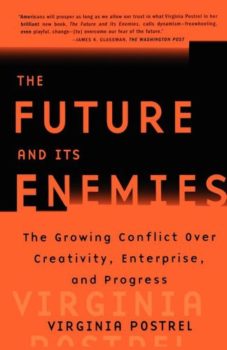 The Future and Its Enemies: The Growing Conflict Over Creativity, Enterprise, and Progress by Virginia Postrel. “One of Virginia’s other books — The Substance of Style: How the Rise of Aesthetic Value Is Remaking Commerce, Culture, and Consciousness — is one of my all-time faves; I really like her work on aesthetics, visual persuasion, fashion, and especially her more recent work on textiles as technology. But only this year did I properly read this book — one of her more political and older works (it’s nearly two decades old) — and damn… it’s perhaps even more relevant today than before, whether in helping explain NIMBYism or why ‘letting a thousand’ startup experiments bloom will beat innovation-by-central coordination any day.”
The Future and Its Enemies: The Growing Conflict Over Creativity, Enterprise, and Progress by Virginia Postrel. “One of Virginia’s other books — The Substance of Style: How the Rise of Aesthetic Value Is Remaking Commerce, Culture, and Consciousness — is one of my all-time faves; I really like her work on aesthetics, visual persuasion, fashion, and especially her more recent work on textiles as technology. But only this year did I properly read this book — one of her more political and older works (it’s nearly two decades old) — and damn… it’s perhaps even more relevant today than before, whether in helping explain NIMBYism or why ‘letting a thousand’ startup experiments bloom will beat innovation-by-central coordination any day.”
…from Matthew Colford, policy team:
Badluck Way: A Year on the Ragged Edge of the West by Matthew Karp. “A beautifully written memoir by a ranch hand who chronicles the constant ecological changes of Montana’s remote Sun Ranch, as well as the tough choices made to preserve the struggling operation.”
Built from Scratch: How a Couple of Regular Guys Grew The Home Depot from Nothing to $30 Billion by Bernie Marcus and Arthur Blank with Bob Andelman. “I picked up this book thinking it would be a great story about two scrappy founders (which it is) only to discover that it is also a great window into the birth of the DIY (do it yourself) movement and what it says about the future of retail in America.”
The Fish That Ate the Whale: The Life and Times of America’s Banana King by Rich Cohen. “The amazing story of Samuel Zemurray, who, like so many immigrants, arrived in the United States without a friend or a penny to his name and went on to build one of the largest corporate empires of the 20th century.”
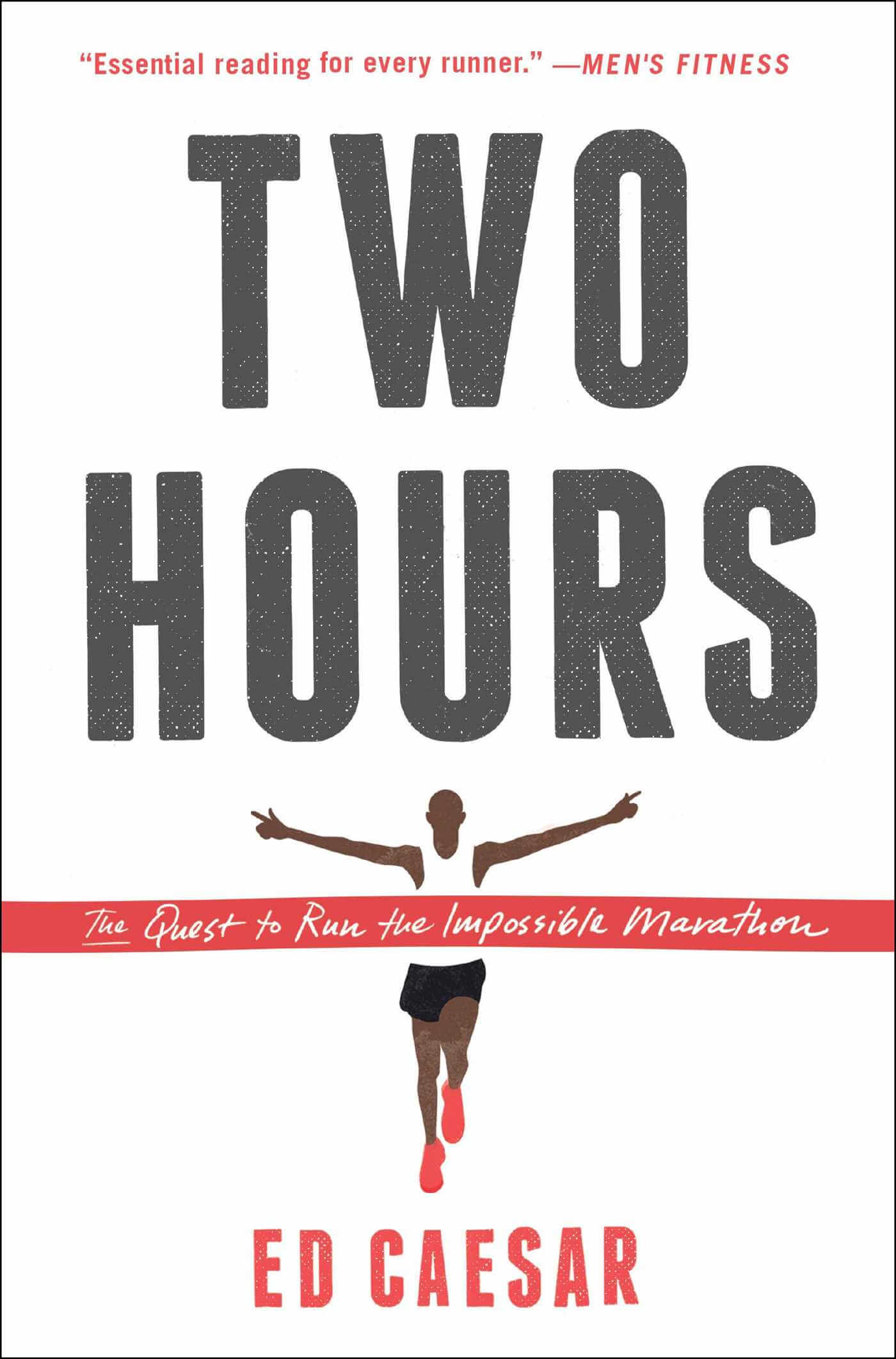 Two Hours: The Quest to Run the Impossible Marathon by Ed Caesar. “In 1954, many physiologists argued that no human would ever break the 4-minute mile, and then Roger Bannister did just that. Today, many scientists likewise question the ability of anyone to run the holy grail of distance running: the sub-two-hour marathon. This book is the incredible story of a group of researchers and runners seeking yet again to defy conventional wisdom.”
Two Hours: The Quest to Run the Impossible Marathon by Ed Caesar. “In 1954, many physiologists argued that no human would ever break the 4-minute mile, and then Roger Bannister did just that. Today, many scientists likewise question the ability of anyone to run the holy grail of distance running: the sub-two-hour marathon. This book is the incredible story of a group of researchers and runners seeking yet again to defy conventional wisdom.”
…from Chris Dixon, general partner:
A Mind at Play: How Claude Shannon Invented the Information Age by Jimmy Soni and Rob Goodman. “Great bio of one of the pioneers of computing/information theory.”
The Accidental Superpower: The Next Generation of American Preeminence and the Coming Global Disorder by Peter Zeihan. “Interesting and provocative take on international relations and the future role of the U.S. in the world.”
1776 by David McCullough. “I always enjoy McCullough, and thought this — on the birth of the U.S. as told from both sides of the Atlantic — was one of his best.”
Republic of Pirates: Being the True and Surprising Story of the Caribbean Pirates and the Man Who Brought Them Down by Colin Woodard. “Pirates are a lot more complicated than typically portrayed!”
Tragedy of Great Power Politics by John Mearsheimer. “One of the all-time best books for understanding how nation states behave and interact.”
From Bacteria to Bach and Back: The Evolution of Minds by Daniel Dennett. “Dennett is always fascinating. This is his latest book, but I also highly recommend Consciousness Explained and Darwin’s Dangerous Idea.”
The Gene: An Intimate History by Siddhartha Mukherjee. “Really interesting personal and scientific history of genetics.”
…from Jared Georgakopoulos, executive talent team:
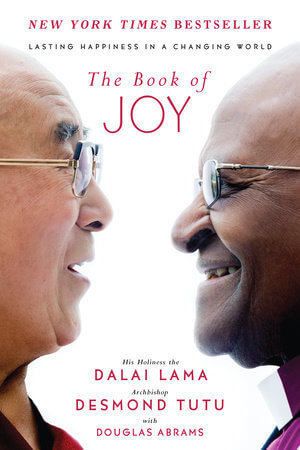 The Book of Joy: Lasting Happiness in a Changing World by Dalai Lama and Desmond Tutu with Douglas Abrams. “An enlightening discussion about joy and compassion between two great spiritual leaders. Good reminder about core values of happiness in fast-paced Silicon Valley.”
The Book of Joy: Lasting Happiness in a Changing World by Dalai Lama and Desmond Tutu with Douglas Abrams. “An enlightening discussion about joy and compassion between two great spiritual leaders. Good reminder about core values of happiness in fast-paced Silicon Valley.”
…from Emily Graff, technical talent team:
Beyond the Messy Truth by Van Jones. “Bought this book after listening to his podcast. It’s a thoughtful look at the current state of American identity politics, including why we have been torn apart and what we can do to come back together.”
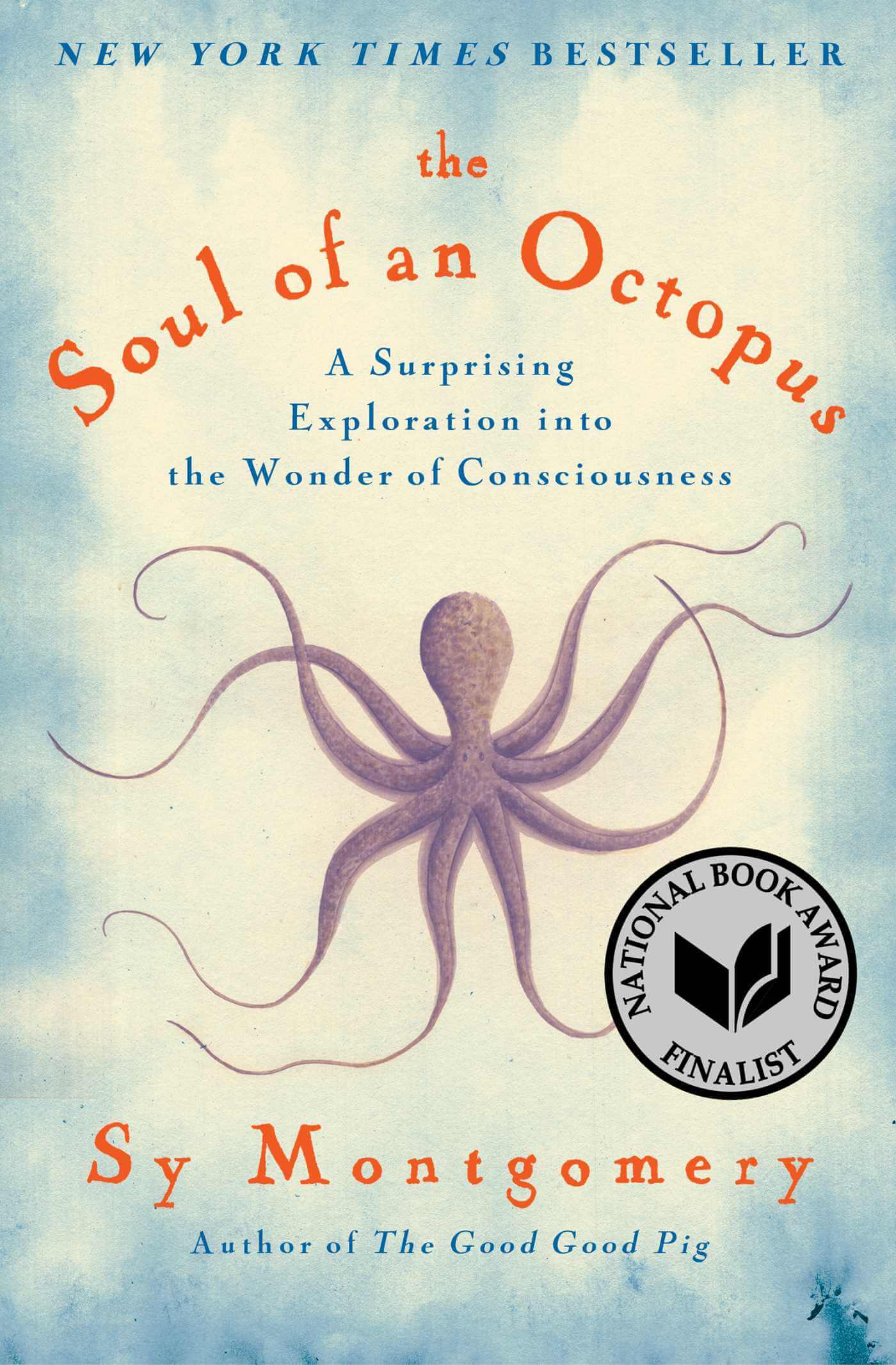 The Soul of an Octopus: A Surprising Exploration into the Wonder of Consciousness by Sy Montgomery. “A completely enthralling glimpse into a world of octopus enthusiasts that also connects to the world of consciousness, intelligence, and empathy. I never had a soft spot for these creatures before, but after reading the book it’s harder to eat octopus.”
The Soul of an Octopus: A Surprising Exploration into the Wonder of Consciousness by Sy Montgomery. “A completely enthralling glimpse into a world of octopus enthusiasts that also connects to the world of consciousness, intelligence, and empathy. I never had a soft spot for these creatures before, but after reading the book it’s harder to eat octopus.”
…from Jose Guardado, executive talent team:
The Singularity Is Near: When Humans Transcend Biology by Ray Kurzweil. “This book completely changed how I think about the future, and how close it is. The book offers a hopeful, at times even spiritual, hypothesis on humankind’s ultimate destiny — and how the evolution of technology is intertwined with our own.”
…from Leila Hay, market development team:
American Gods by Neil Gaiman. “I just love Gaiman’s fantastical, supernatural fiction, so I revisited this book this year after reading it a few years back. The Norse gods are a big backbone of the story so read the myths too (or his retelling of them) first if you can.”
…from Dave Jagoda, engineering team:
Eloquent JavaScript by Marijn Haverbeke. “This is the best all-around JavaScript book I’ve found so far.”
A Personal Odyssey by Thomas Sowell. “I’ve enjoyed Sowell’s other works (he writes about economics, history, social policy, ethnicity, and the history of ideas), but reading about his autobiographical journey — from Harlem to the Marines to Howard and Harvard to the Hoover Institute — gives more context to his views.”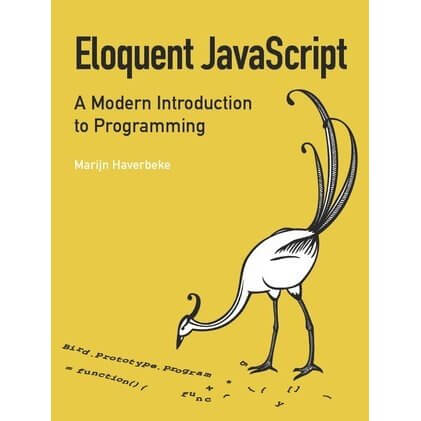
23 Things They Don’t Tell You about Capitalism by Ha-Joon Chang. “I heard the author make a compelling argument that there’s no such thing as a free market, so wanted to learn more.”
…from Li Jin, deal team:
The Facebook Effect by David Kirkpatrick. “A fascinating history of a company that is now ubiquitous in our lives.”
…from Jeff Jordan, general partner:
The Score Takes Care of Itself by Bill Walsh. “Late in his career Bill lectured at the Stanford Graduate School of Business; he believed the lessons he learned in sports were directly applicable to business. His book is one of the best books I’ve ever read on leadership, punctuated with examples from his storied career as a football coach.”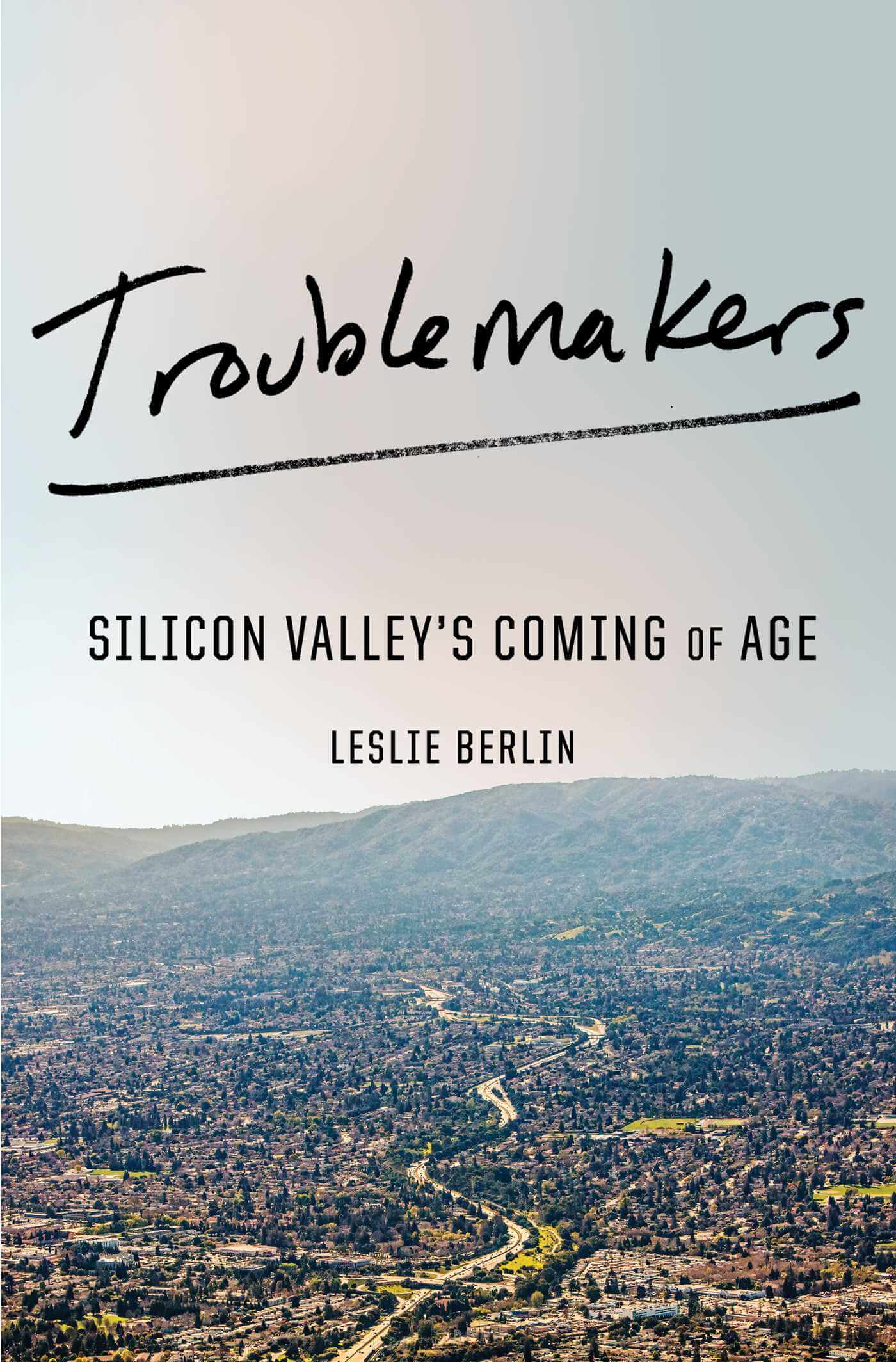
Troublemakers: Silicon Valley’s Coming of Age by Leslie Berlin. “A history of of the development of Silicon Valley told through the stories of seven Silicon Valley pioneers, some well known and some less so. Very interesting narrative made more interesting by a lot of color and trivia.”
…from James Kissell, market development team:
Platform Revolution: How Networked Markets Are Transforming the Economy — and How to Make Them Work For You by Geoffrey G. Parker, Marshall W. Van Alstyne, Sangeet Paul Choudary. “Many of today’s largest and most valuable companies — from the 95-year-old Disney to tech startups — leverage platform strategies and network effects. Throughout this book, you’ll be writing down how these dynamics could strengthen your own business strategies and ideas.”
…from Matt Levy, executive talent team:
Twelve Yards: The Art and Psychology of the Perfect Penalty Kick by Ben Lyttleton. “Using statistical analysis, psychological studies, and interviews with the best — and worst — penalty takers world soccer history, this book goes deep into the variables and incentives that make all the difference between glory and disgrace from the penalty spot. It even gives U.S. soccer fans hope for a summer full of Panenka-style penalty kicks. Why not go into obsessive detail on this topic given the coming World Cup year of 2018?”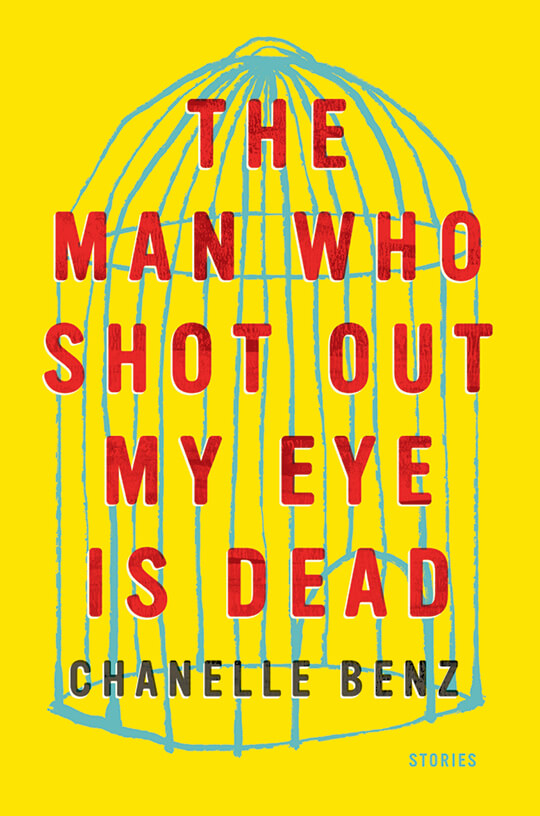
The Man Who Shot Out My Eye is Dead by Chanelle Benz. “A highly readable collection of short stories with a great range of tone, time, and voice.”
…from Jeffrey Low, bio deal team:
Principles: Life and Work by Ray Dalio. “Inside the mind and principles that guide the life of Ray Dalio, the founder of the storied hedge fund Bridgewater.”
Genghis Khan and the Making of the Modern World by Jack Weatherford. “Not only is this a fun narrative history of Khan and his descendants, it aims to shatter the image of The Mongols as blood- thirsty nomads bent on destruction. Weatherford shows that the Mongols under Khan ruled with unprecedented religious tolerance and meritocracy, while also sponsoring innovation to spur a vast empire of trade.”
…from Kiki Mavridis, executive assistant:
A Gentleman in Moscow by Amor Towles. “I loved this eloquently written book about a Russian aristocrat living under house arrest at the Metropol Hotel, Moscow in the 1920s. The grace and elegance of the main character, Count Alexander Rostov, is very old world and charming. I didn’t want the book to end!”
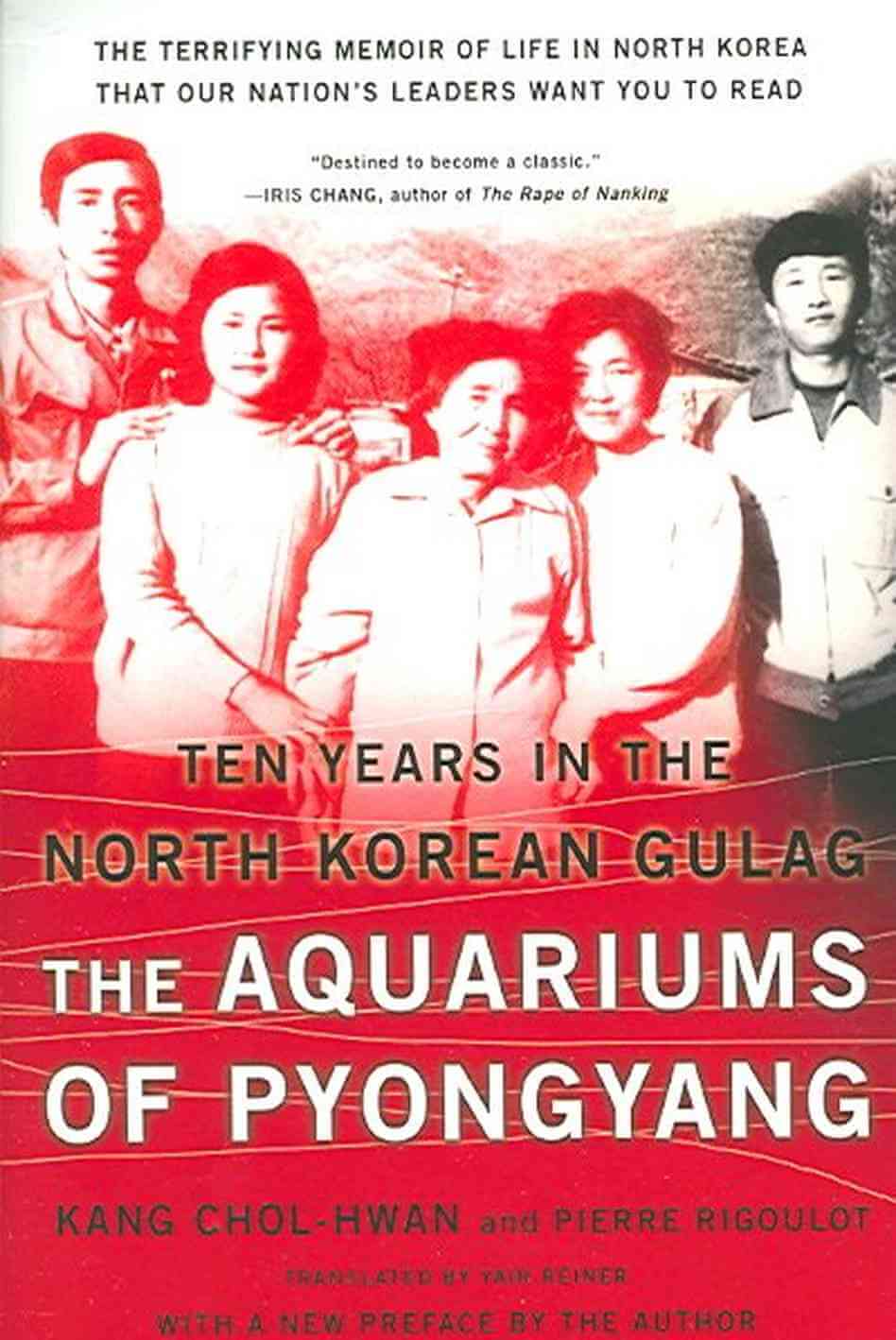 …from Jamie McGurk, corporate development team:
…from Jamie McGurk, corporate development team:
The Aquariums of Pyongyang: Ten Years in the North Korean Gulag by Kang Chol-Hwan and Pierre Rigoulot. “One of the first escapees of North Korea’s concentration camps describes life — and his experience growing up — inside these camps.”
The Elephant Whisperer: My Life with the Herd in the African Wild by Lawrence Anthony with Graham Spence. “What an interesting life… running a wildlife preserve in Africa and protecting magnificent elephants.”
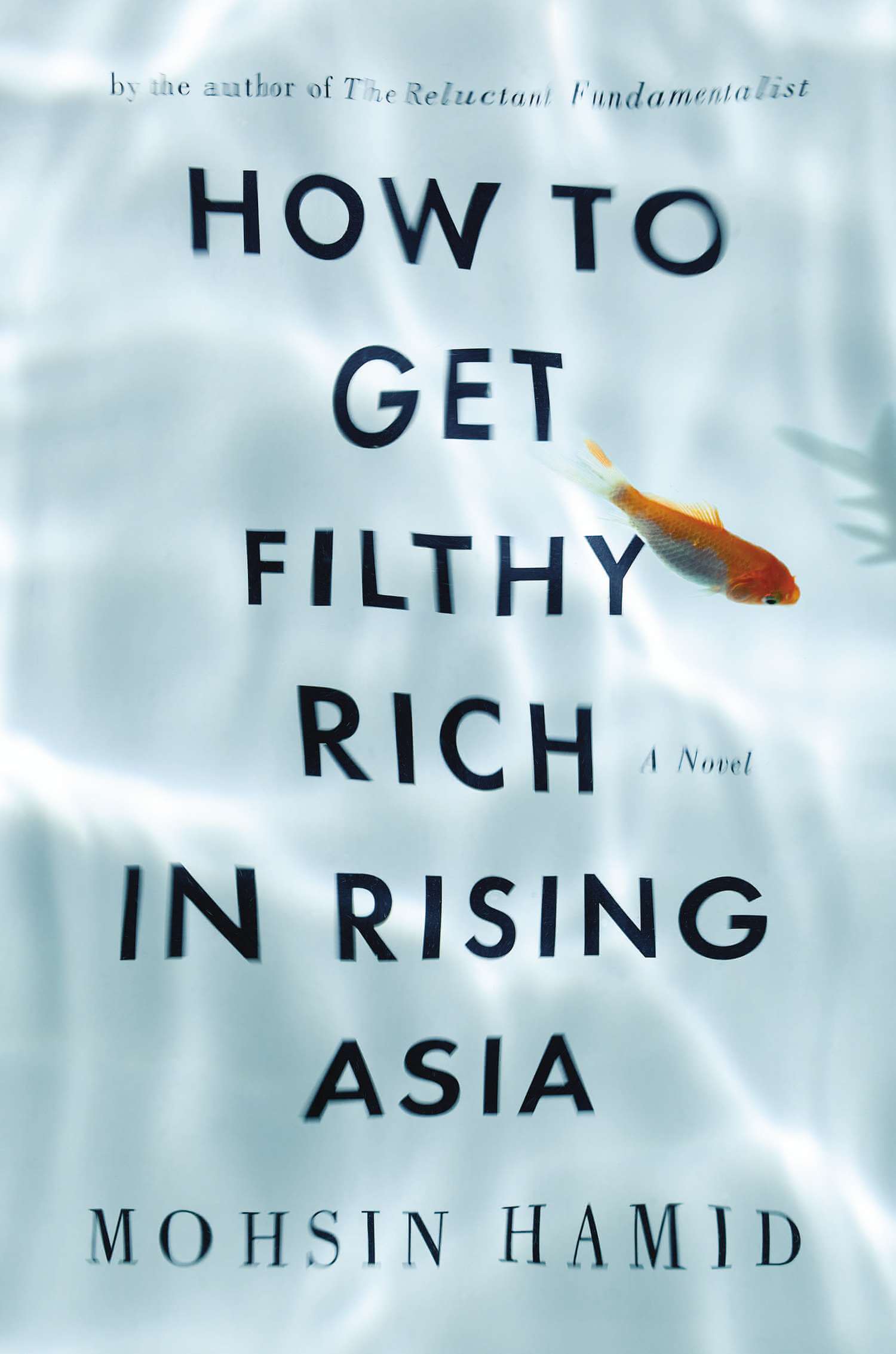 How to Get Filthy Rich in Rising Asia by Mohsin Hamid. “Amazing novel, and makes you question everything.”
How to Get Filthy Rich in Rising Asia by Mohsin Hamid. “Amazing novel, and makes you question everything.”
A Very Expensive Poison: The Definitive Story of the Murder of Litvinenko and Russia’s War with the West by Luke Harding. “They did WHAT?”
…from Hemant Mohapatra, deal team:
When Breath Becomes Air by Paul Kalanithi. “This book goes deep into the psyche of death yet comes back with surprising insights on what it means to be alive.”
The Everything Store: Jeff Bezos and the Age of Amazon by Brad Stone. “This book reminded me how a now-global phenomenon like Amazon seemed completely crazy and ridiculous back then, and made me appreciate the need for optimism early on.”
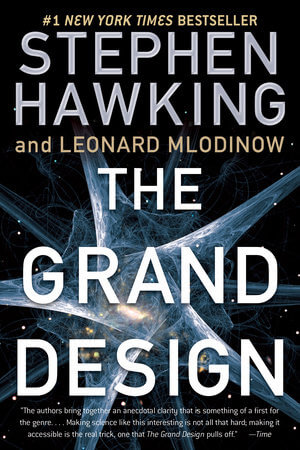 The Grand Design by Stephen Hawking and Leonard Mlodinow. “Read this book when you feel your mind cannot possibly be stretched any further.”
The Grand Design by Stephen Hawking and Leonard Mlodinow. “Read this book when you feel your mind cannot possibly be stretched any further.”
…from Ana Mostarac, corporate development team:
The Seat of the Soul by Gary Zukav. “When Oprah refers to a book as both life- and business-changing, you should probably read it! This book taught me about the power of intention — that intent precedes every thought and every action, and the outcome of your experiences is determined by intentions.”
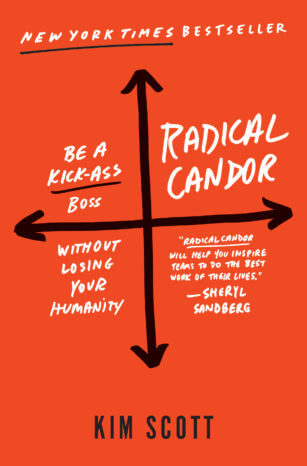 Radical Candor: Be a Kick-ass Boss Without Losing Your Humanity by Kim Scott. “This book is relevant for everyone, at all levels. It’s a framework for how to be both a better leader and a better colleague.”
Radical Candor: Be a Kick-ass Boss Without Losing Your Humanity by Kim Scott. “This book is relevant for everyone, at all levels. It’s a framework for how to be both a better leader and a better colleague.”
Sapiens: A Brief History of Humankind by Yuval Noah Harani. “This book is a masterpiece.”
…from Jad Naous, deal team:
Genghis Khan and the Making of the Modern World by Jack Weatherford. “Great historical analysis, brings to light much about strategy and an understanding of an historical era that for the most part remained a bit of a mystery until recently.”
…from Vijay Pande, general partner:
Principles: Life and Work by Ray Dalio. “The concept of designing your life around a key set of guiding principles really resonates. Dalio, founder of Bridgewater Associates (one of the largest hedge funds in the world), credits his success on developing and following a core set of principles rather than unique abilities. He suggests anyone following such principles can expect to produce broadly similar results in their own work. The book is very well laid out and organized, basically serving as a roadmap to achieving what you want out of life. It’s by no means a ‘feel-good’ self help book — rather, it’s an honest look at living a life of integrity, embracing the hard truth, and realizing that most learning comes from reflecting on your setbacks and mistakes.”
The Power of the Other: The Startling Effect Other People Have on You, from the Boardroom to the Bedroom and Beyond — and What to Do about It by Dr. Henry Cloud. “Lots of personal development books dive into improving performance. What’s unique about this book is the exploration behind why some people are able to surpass limits. The author suggests that quality of relationships is a critical factor in one’s success; this has been on my mind this past year especially. As I have surrounded myself with people of integrity who hold themselves and others accountable to the highest standards, I find I have less tolerance for relationships with individuals who do not share these principles and values. This may be intuitive, but not necessarily obvious: ‘Your own performance is either improved or diminished by the people in your scenario.'”
…from Ale Resnik, founder-in-residence:
Dream Big: How the Brazilian Trio behind 3G Capital — Jorge Paulo Lemann, Marcel Telles and Beto Sicupira — Acquired Anheuser Busch, Burger King, and Heinz by Cristiane Correa. “It’s a story of unlikely success: What are the chances that three Brazilians would end up owning some of the most iconic and beloved American brands? The book takes the reader through the very few, but significantly different, management and leadership practices that allowed this trio to displace generations-old owners that had lost the sparkle to run their business.”
…from Steven Sinofsky, board partner:
To Engineer Is Human: The Role of Failure in Successful Design by Henry Petroski. “This is the very best book on why, as engineers, we learn from failures of engineering. It goes into detail on why things fail in the first place despite the best of intentions. It’s also a sobering look at the cost of failure in the physical world, which is sometimes overlooked in software.”
IBM’s 360 and Early 370 Systems by Emerson W. Pugh, Lyle R. Johnson, John H. Palmer. “The IBM 360 was one of the most astonishingly architected systems of all time. The team literally invented modern computing — from memory to storage to virtualization to multi-tasking — all sketched out in a single project, offsite, small team. This project also pioneered the notion of ‘compatibility’ and systems architecture that would continue operating the most mission critical systems…even today.”
The Existential Pleasures of Engineering Subsequent Edition by Samuel C. Florman. “Engineers are famous for expressing the view that ‘wow this is totally messed up, but don’t worry I can fix it’. What is that? What makes engineering brains tick? Do engineers feel as well as think? In this book, Florman takes a deeper — and more philosophical — look at how the brain of an engineer works.”
…from Jordan Stankowski, market development team:
Moonwalking with Einstein: The Art and Science of Remembering Everything by Joshua Foer. Who doesn’t want better memory? Foer explores various mnemonic tools used throughout history for improving memory, and this leads to his participation in the U.S. Memory Championship, where he performs astonishingly well! An interesting read that demystifies the secrets of memory champions and the incredible feats one’s mind can accomplish with practiced technique.”
Born to Run by Bruce Springsteen. “I picked this up because I grew up with my dad playing ‘Born in the USA’ at every family get together. This book covers his incredible journey — while shying away from traditional rock-star vices — from Jersey to California and back. Reading this book also helps explain why his shows can run three or even four hours long; it epitomizes a love for music.”
…from Hanne Tidnam, editorial team:
Lincoln in the Bardo by George Saunders. “This unusual, strange book bothered me at first in both conception and execution: one long supernatural conversation between all the ‘inhabitants’ in the graveyard where Lincoln’s beloved son has just been buried. But the eccentric, original narrative of Lincoln’s most profound personal loss of his youngest son Willie — to fever, one year into the Civil War — gradually won me over, until by the end I felt like this was actually the only way this particular story could have been told. It is a fascinating new imagining of a stricken, mourning Lincoln (a man of many many portrayals, so no small feat) and it is a deeply human, tender, and intimate meditation on death, on loss, and on love.”
…from Malinka Walaliyadde, bio deal team: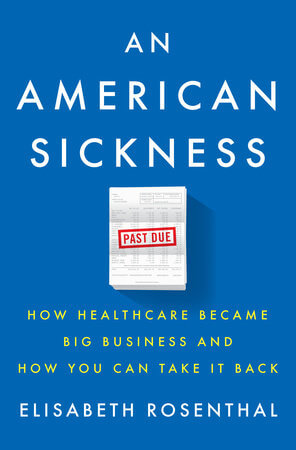
An American Sickness: How Healthcare Became Big Business and How You Can Take It Back by Elisabeth Rosenthal. “Read this book if you’re not already angry about the healthcare system. Or if you want to get more angry about it.”
…from Michael Wee, deal team:
Mistborn Trilogy by Brandon Sanderson. “It’s been a while since I’ve dived into fiction and as a first-time Sanderson reader the Mistborn trilogy may have gotten me back on the rails. The trilogy is fast-paced, packed with layered mysteries to uncover, and consistent throughout with a cast of great characters.”
Shoe Dog: A Memoir by the Creator of Nike by Phil Knight. “The Nike behemoth started with humble beginnings. This book is a fascinating look at the twists and turns, lucky breaks, smart decisions, and sheer time and perseverance it takes to build a lasting company.”
…from Ali Yahya, deal team:
The Beginning of Infinity by David Deutsch. “An incisive take on the philosophy of science. Inspired by the work of Karl Popper. This is one of a handful of books that meaningfully reshaped my view of the world.”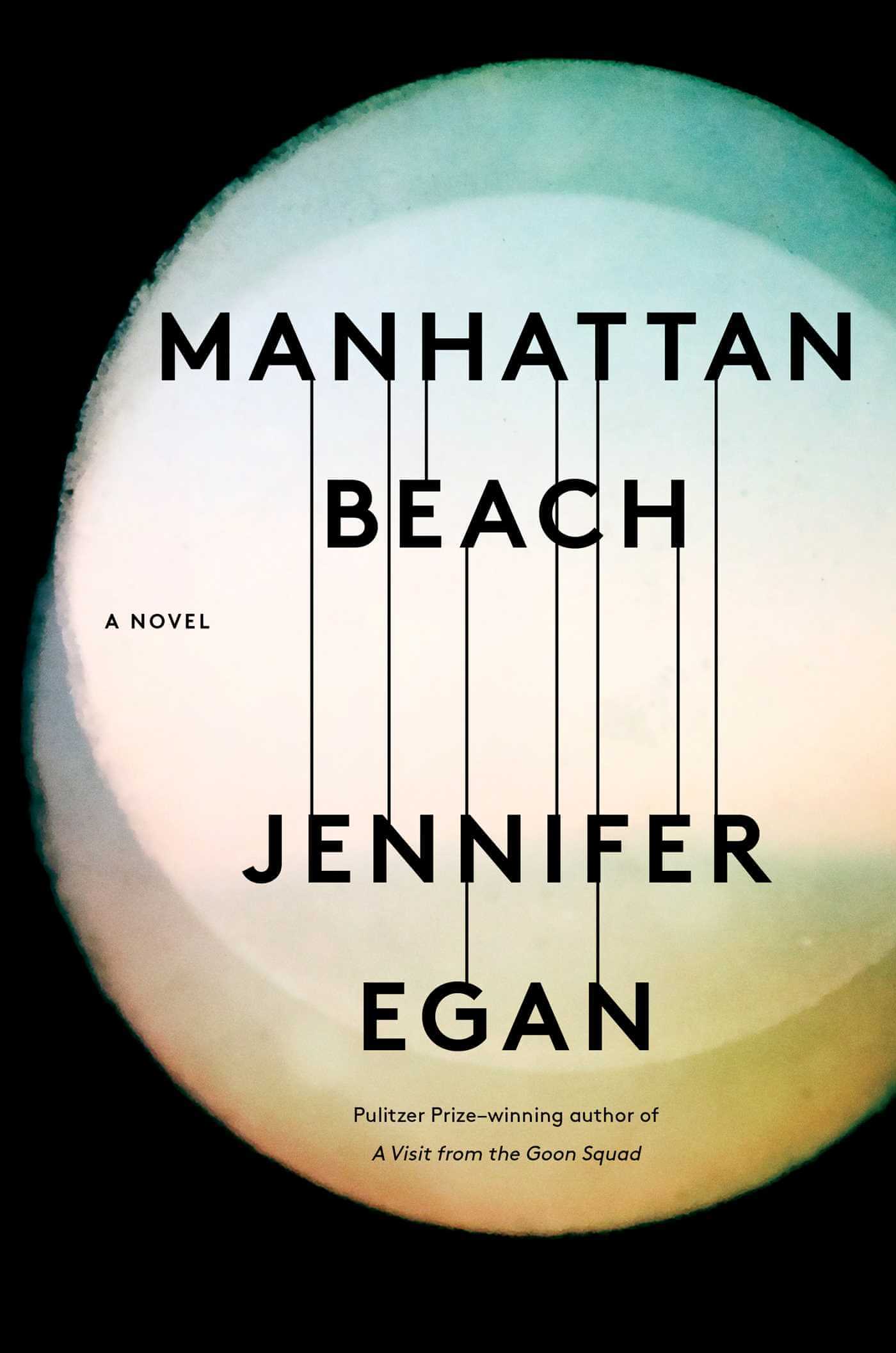
…from Gina Yocom, market development:
Manhattan Beach by Jennifer Egan. “A great crime story set in Brooklyn during World War II. It is an empowering story of a woman, Anna Kerrigan, who becomes the first female diver in the Navy and who is also determined to piece together what happened to her father who disappeared when she was young. It is brilliantly told and well written, from the character building and symbolism to the vibrant descriptions of old New York.”
-

a16z editorial

